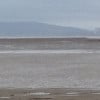The Falklands Dispute, what do neutral nations think?
- Matthew Kirkposted 11 years ago
0
The more I read on other forums and from comments on media websites the more I get upset. It seems like either the international community is surely misinformed, misguided or blind.
If you have not heard of the falklands war previously then you can read up on this short hub: http://r9139.hubpages.com/hub/The-Falklands
From my point of view, if you are from a democratic country, you should support the peoples wishes. Almost 100% of Falkland Island residents wish to remain an overseas territory of the United Kingdom (They are still pretty much self governing, they only rely on us for military and foreign affairs). If the people of the Island decide they want anything other than this, they will have it.
The Argentinians seem to be winning the diplomatic war, every other country seems to have the idea that we are just being silly and colonial. Are we? Or have we not focused on spinning our own side of the argument enough?I sincerely hope the Falklands remain British, or at least within the sphere of British protection! I was born a Chilean, but my family was British. I live next door to Argentina, and I know quite a lot about their constant desire to take other country's lands and claim them for their own. Chile used to reach the Atlantic, there was an entire Chilean Patagonia on the other side of the Andes. Unfortunately, due to the vagaries of Spanish colonial authority, the limits of each country have always been a subject of contention. While Chile was busy raising an army (inexistent at that date) to fight for its rights after being attacked by Bolivia and Peru to the North, (a 3-4 year war which ended in a triumph for Chile against massive odds), Argentina then threatened to take over Chilean Patagonia by force. As Chile could not possibly hold off THREE bordering countries simultaneously, Chilean Patagonia was reluctantly relinquished. What happened next? The "Argentine" Patagonia was then populated with Welsh and Scottish immigrants, to such an extent that in this day and age, there are many communities there that still speak Gaelic. Argentina couldn't even look after what they had obtained!
Just prior to the Falkland war in recent years, Argentina was intent on going to war with Chile, to take over even more of this country for their own. I know this first hand, I was on the Staff of a Chilean State University, and all us scientific folk were warned to remain at home over the summer long holidays, in case we were called up to take on special war jobs during the war with Argentina that loomed over our heads. This confrontation was finally solved by international pressure, but Argentina needed a war to divert internal unrest which threatened to overthrow their government, so they turned round and struck the weaker victim. I'm proud to say that, although neutral, Chile participated closely in aiding Britain over this emergency. Now it seems there are riches to be found around the Falklands, so here we go again! Round and round the mulberry bush!
The Falklanders are no fools, they can't be if they have survived in that harsh environment. They must be fully aware, as are the Chileans, that if Argentine takes them over, they will be pushed to one side and lose all their present standard of life.The natural riches will be exploited and probably mismanaged, and then the Islands will be left derelict. They want to remain British and I heartily agree!I think you have been proved very right about all of your points! Recently the British Government decided to call a piece of antartica queen elizabeth land. All of a sudden a few days later the argentinians pipe up saying that they own that piece of land. Antartica was carved up between a lot of different nations long ago and is nothing to do with colonialism.
It does seem they are trying to raise pulses, potentially to distract their own people from the misery of their existence?
Many people don't realise the Falkland Islands had British settlers since 1690 (before Argentina existed as an independent sovereign nation). Many also don't realise that there was no indigenous population living there when it was settled (apart from the penguins).
Argentina gained independence in 1816, and first tried to colonise the Islands in the 1800s, which was over a hundred years after British settlers had already been established there. Typically many Islanders can trace there ancestry on the Island back many generations, over hundreds of years.That is an excellent and useful piece of information to add to this thread. Nice one

I agree! Those dates are rather conclusive, I think!
The ignorance demonstrated on this subject is really mind boggling ,only surpassed by the falsehood of the statements here expressed.The reason why it seems Argentina is winning the diplomatic war is because they are,and they are because the international community rightfully understands that international law is on their side.In all likelihood Great Britain will continue to hold on to this last remnant of its colonial grandeur for as long as it wishes.Or until the international diplomatic pressure along with the economic cost to the former empire convinces them that it is financially unprofitable to continue to hold on to a territory they stole from its rightful owner,the people of Argentina.The islands belonged to the kingdom of Spain since 1493 regardless of who discovered them,but even if that wasn't the case they were discovered by Esteban Gomez who was commanding the ship "San Antonio" which was part of Magellan's expedition.They were part of the Spanish kingdom all throughout the colonial period,and were part of the "Provincias Unidas del Rio de la Plata" first and the Republic of Argentina later.They were populated by people from Argentina,Uruguay,and other nationalities .The english pretended several times to have "DISCOVERED "them,and militarily invaded and occupied them in 1833,expelling the local population and replacing it with British subjects.During the previous centuries they had only been established unlawfully in the town of port egmont from where they were repeatedly removed as the intruders that they were.during the independence wars in the area both the french and the british tried to occupy them until finally the british did in 1833,and they have been occupying them by force until this day.
Mio
We have a free press and a well respected one. We have free academics and excellent academic institutions. Are you certain you want to believe the rubbish you grew up reading?
Now what you believe to be fact is disputed. Not just the british or the spanish claim to have discovered the islands but the portugal also argued they discovered it once upon a time and may well have. The first reliable sighting was certainly dutch. So by your argument (which is basically we saw it first) the dutch should own the islands.
As far as settlers, the spanish were the third european nation to settle the islands after the french (who were first) and the british who were second. In 1764, French navigator and military commander Louis Antoine de Bougainville founded the first settlement on Berkeley Sound, in present-day Port Louis, East Falkland. In 1765, British captain John Byron explored and claimed Saunders Island on West Falkland, where he named the harbour Port Egmont and a settlement was constructed in 1766.Unaware of the French presence, Byron claimed the island group for King George III. Now you will like this bit mio: Spain acquired the French colony in 1767, and placed it under a governor subordinate to the Buenos Aires colonial administration. In 1770, Spain attacked Port Egmont and expelled the British presence, bringing the two countries to the brink of war. War was avoided by a peace treaty and the British return to Port Egmont.
In 1774, economic pressures leading up to the American Revolutionary War forced Great Britain to withdraw from many overseas settlements. Upon withdrawal, the British left behind a plaque asserting Britain's continued claim. Spain maintained its governor until 1806 who, on his departure, left behind a plaque asserting Spanish claims. The remaining settlers were withdrawn in 1811. -
So you left of your own will and we returned and populated the island.
Now I don't know who everyone would like to believe? You can believe mio, who has just had a slightly fanatical patriotic rant, or me, who unlike mio lives in a free country (to the point where some british people openly support argentina, but only about 2% of the population, whereas at least 25% of argentinians would rather accept our sovereignty, but not openly), with a free press and a free and hugely well established academic history which is regarded as number 1 in the world by many and who educate and inform its people through advert and corporation free, public (but not government) owned institutions like the BBC? So who's info do you think is correct mio? Your own?
Did you know that during the war, your government forced your press to publish only the good stories, and to fabricate victories which never happened? Most Argentinians thought they were about to win the war right up until the last second! Whereas I dont think they won a single land battle and were swept aside in just a few days by a British force 6 times smaller.
And don't think things have gotten much better, we are well informed on he developing facist government you still live under. We allow your people to live in this country free and un-harrassed (though your media won't let you believe so), not many paint a nice picture of a corrupt and non functional country.
As for the colonial rubbish - they are self governing, we just conduct foreign affairs and military protection on their behalf. And there are another 13 (making 14 total) british overseas territories just like the falklands at this time and this doesn't count the huge common wealth including canada, australia, south africa, india and many more. They are all self governing, all determine their own futures and most have very little to do with us (many still have the queen as head of state out of choice). We are the first empire in history which never fell, but instead gave many nations their democracy, given though we have made mistakes, but turn on your tv, turn on your computer and use the internet, travel on a train or in a car or go over a long bridge, or even bake a cake, and you will realise that none of it would be there if it wasn't for the british literally inventing the modern world.We in India,accept British Monarchy as only head of Common Wealth,in which India is a member,British Monarch has nothing to do any thing more about us.
I think India would be better without British,it is another topic all though.
For Falkland,those islanders should have their right to decide their own fate,but the facts are they are born and raised as British,so to them British rule seems normal,there are language similarities.Apart from this,Britain is a developed country so remaining under British rule is economically better for them,as well as Argentina is developing country,cant give such opportunity.These factors play critical role in plebiscites.
And for Argentina,apart from close Geographic location,they cant do any thing more.The question is Argentina tried to capture Falkland or Malvinas in 1833,they failed,suddenly they became busy in 1982,why?Because of Economic crisis,in 1982 Argentina was facing high inflation,budget shortage etc,people were becoming angry on then Military government,so to distract people they decided to raise the Falkland issue.But present President Cristina Kirtchner is not like this,she has foresight so at first she is doing campaigning in support of Argentina which Military dictators lacked.
British claims Falkland as British,Argentina claims Falkland as their own,Malvinas,truth is Falkland is for Falklandars,they should become another dominion country like Canada.Waffen SS? You couldn't come up with anything more offensive?
Yup Argentina had a fascist military dictatorship... in the 80s, it collapsed soon after the war and has been a democratic nation ever since.
The ignorance is astounding.When English explorer John Davis, commander of the Desire, one of the ships belonging to Thomas Cavendish's second expedition to the New World, separated from Cavendish off the coast of what is now southern Argentina, he decided to make for the Strait of Magellan in order to find Cavendish. On 9 August 1592 a severe storm battered his ship, and Davis drifted under bare masts, taking refuge "among certain Isles never before discovered." Consequently, for a time the Falklands were known as "Davis Land" or "Davis' Land."
In 1594, they were visited by English commander Richard Hawkins, who, combining his own name with that of Queen Elizabeth I, the "Virgin Queen", gave the islands the name of "Hawkins' Maidenland."
In 1600, Sebald de Weert, a Dutchman, visited them and called them the Sebald Islands (in Spanish, "Islas Sebaldinas" or "Sebaldes"), a name which they bore on some Dutch maps into the 19th century.
France established a colony at Port St. Louis, on East Falkland's Berkeley Sound coast in 1764. The French name Îles Malouines was given to the islands – malouin being the adjective for the Breton port of Saint-Malo. The Spanish name Islas Malvinas is a translation of the French name of Îles Malouines.
In 1765, Capt. John Byron, who was unaware the French had established Port Saint Louis on East Falkland, explored Saunders Island around West Falkland. After discovering a natural harbour, he named the area Port Egmont and claimed the islands for Britain on the grounds of prior discovery. The next year Captain John MacBride established a permanent British settlement at Port Egmont.
Under the alliance established by the Pacte de Famille, in 1766 France agreed to leave after the Spanish complained about French presence in territories they considered their own. Spain agreed to compensate Louis de Bougainville, the French admiral and explorer who had established the settlement on East Falkland at his own expense. In 1767, the Spanish formally assumed control of Port St. Louis and renamed it Puerto Soledad (English: Port Solitude).
In early 1770 Spanish commander, Don Juan Ignacio de Madariaga, briefly visited Port Egmont. On June 10 he returned from Argentina with five armed ships and a 1400 soldiers forcing the British to leave Port Egmont. This action sparked the Falkland Crisis between 10 July 1770 to 22 January 1771 when Britain and Spain almost went to war over the islands. However conflict was averted when the colony was re-established by Captain John Stott with the ships HMS Juno, HMS Hound and HMS Florida (a mail ship which had already been at the founding of the original settlement). Egmont quickly became an important port-of-call for British ships sailing around Cape Horn.
However with the growing economic pressures stemming from the upcoming American War of Independence, the British government decided that it should withdraw its presence from many overseas settlements in 1774. On 20 May 1776 the British forces under the command of Royal Naval Lieutenant Clayton formally left Port Egmont, while leaving a plaque asserting Britain's continuing sovereignty over the islands. For the next four years, British sealers used Egmont as a base for their activities in the South Atlantic. This ended in 1780 when they were forced to leave by Spanish authorities who then ordered that the British colony be destroyed.
Spain, which had a garrison at Puerto Soledad on East Falkands, ruled the islands from Buenos Aires until 1811 when it was forced to withdraw. This was due to the military pressures created by the Peninsular war in Spain and the growing calls for independence by its colonies in South America. On departure, the Spanish also left a plaque proclaiming Spain's sovereignty over the islands like the British had done 35 years before.
The first possible settlers were from Patagonia therefore Chile could lay just as much claim as the Agentinians.You are forgetting the settlement of the Provinces of the River Plate, you know the one that was forced off.
As for Chile you may be right that it has a claim but it officially supports Argentina's claim so that is hardly an issue. Even if it was it would be something to sort out between Chile and Argentina and nothing to do with the UK still owning an island on the other side of the world and continuing to bully and colonize third world nations. Did you know that aside from the Falklands Britain has invaded Argentina twice? Once using the Falklands as a base, thankfully both invasions were defeated.
We in America know all too well what the British are like as colonists and oppressors.So the Americans are not colonialists the Josak?
We certainly have been at regrettable points. Which is and was wrong too. Certainly not on the world consuming scale, the whole question is not relevant however.
The relevence is of course that Native Americans believe America is theirs.
Which is entirely different for several reasons
#1 I believe most if not all native American tribes made treaties in exchange for reservation land, and thus gave up their legal claim.
#2 Many native American tribes do have their own nations and land.
#3 Native American land is on and in American soil, the Falklands are on the other side of the world from England.So it's ok if they are cheated out their lands then but not if its across the other side of the world. What about Hawaii then, how far or close does it have to be?
The Falklands have been in continues occupation for 300 years but hasn't been occupied by the Argentinians at any time during that period (except when they invaded it by force), is it the case that any nation could claim any land or island because of its proximity then.First off what happened in Hawaii was a travesty, one of the lowest points in American history and it has quite a few low points, if the original people of Hawaii wanted independence or another country had a more legitimate claim then I would fully support it being released. As it is we (hopefully) learned our lesson on the evils of colonialism and will never make that mistake again. (Fingers crossed).
The Provinces of the River Plate which is what Argentina was called during the 19th century did have a colony on the Islands it was forcibly removed after more than twenty years of occupation.
"On 3 January 1833, Captain James Onslow, of the brig-sloop HMS Clio, arrived at Vernet's settlement at Port Louis to request that the flag of the United Provinces of the River Plate be replaced with the British one, and for the administration to leave the islands. While Lt. Col. José María Pinedo, commander of the schooner Sarandí, wanted to resist, his numerical disadvantage was obvious, particularly as a large number of his crew were British mercenaries who were unwilling to fight their own countrymen. Such a situation was not unusual in the newly independent states in Latin America, where land forces were strong, but navies were frequently quite undermanned. As such he protested verbally, but departed without a fight on 5 January."
So that was just false.
Yes in most circumstances (excepting instances where there has been a signed agreement etc.) in a dispute over territory the closer nation should have precedence.
As the international courts have confirmed Argentina has claim to the Falklands because they were given them by the Spanish in the revolutionary peace settlement. The Spanish had in turn bought them off the French who were the original colonizers thus making the Spanish and subsequently the Argentine claim the only valid one as it's the only claim ratified by official treaty.So the French or Spanish (no proximity to the islands) gave it to the newly formed nation that it had plundered for 300 yrs!
As you said and history shows even when those from the provinces of the river plate were there they had British citizens amongst them, so as I said the British have been there for years.
Wasn't it the proximity argument used by Hitler in most of his land grab claims?Yup after being defeated the Spanish handed it over as part of the peace treaty. That is completely normal.
The fact that British people were on an Argentine Island alongside Argentinians under an Argentine administration makes no difference to the claim at all.
I have no idea what Hitler said on the issue but he was seizing territory that was part of sovereign territories which were adjacent so it's impossible for the proximity argument to work or be valid there, both sides are equally close.
As I said, legally, morally and logically there is no justification for England owning the Islands.And as I said, legally, morally and logically there is no justification for Argentina owning the Islands.
mio, read mistyhorizon2003 s statement at the bottom of this page. Basically tears to shreds everything you have been taught by pamplets and state controlled media. I do feel sorry for you.
Might does not equal right, just because Brittan seized the Island at gunpoint from the Argentines and removed the flag of the Provinces of the River Plate and then had some British people immigrate there does not make something theirs because if it does that means that might DOES equal right.
If the US kicks everyone off the Isle of Man at gunpoint then puts some Americans there who are loyal to America is it rightfully ours now? That is ridiculous and so is the British claim to the Falklands.
Would you feel the same way if, say, Mexico had claim on the Channel Islands or other nearby islands and the residents/colonists wanted to remain Mexican subjects? I'm somewhat neutral on the dispute, but I'm just asking you to consider a reciprocal situation to test your impartiality.
I think I wouldn't have a problem as a general supporter of peoples rights to self determination. Remember that the Channel Islands are closer to France, the French don't argue with us about them though because they are culturally closer to us and also democratically chosen their own existence.
Our Prime Minister has made clear, that if the Islanders want to be governed by Argentina they can be and few in my country would argue with it either. But they don't, they are free to self govern for the most part as they are.
The Malvinas are how far away from the mainland?
I understand both sides and must say no matter how you promote it... it's not all about the 'now' island residents, who were also boosted in numbers, after the wartime (1983) resident Argentinians were dealt with, during and after the war!
You really need to argue your case with genuine More Passion....
Did you not learn that from the Argentinians?
I think we do need to argue more passionately and make more noise on an international stage. We are very very passionate about protecting those people internally.
Sorry just read your comment again. What Argentinian residents? There were no indigenous people on the island when the current individuals moved in and they and their descendants have been the only people the live on the island and they are nearly 100% British stock.
They have more right to that land than the New Zealanders, Australians, Americans.... with any european ancestry.
I am a resident of the UK and I consider Las Islas Malvinas to belong to Argentina by virtue of geographical proximity.
The fact that the war machine of the British Empire invaded the territory and imported in hundreds of impoverished sheep farmers is, in my opinion, no justification for the UK's ridiculous claims to ownership.
It has long been shown that the per capita subsidies flung at the British sheep farmers there would make each family extremely rich if they could use the money as they wished. If they did receive the subsidies in cash, I doubt many would choose to remain there.I couldn't disagree more. We don't own the islands as it is, they own themselves, we just protect their way of life for them. Do you think we should have these sheep farmers displaced after living there for hundreds of years so they can move their own people in?
The people of a nation should be the primary governing entities of said nation.
For anybody to claim them due to anything such as geographic proximity is unfair to the citizens...they should have the right to live under whatever laws and government they want.
If they really don't want to be governed then I would at first say let them claim independence. The problem here is self-sustainability..which probably doesn't exist too much if they *want* to be ruled by the UK. So, with that out of the way...it leaves one option. If they want to be a part of the UK, and the UK wants them - then that is how it should be. Any debate beyond that is just silly in my opinion.I'm a citizen of the UK and I believe that Las Malvinas should be independent. If the citizens of Las Malvinas *want* to belong a particular nation or be ruled by a particular nation by virtue of subsidies then they should *live* in that nation.
They clearly have something which everyone else wants- if only they could organise themselves and stop justifying colonisation because of their personal ambitions.Sounds like you are talking about some sort of conspiracy theory? Can you explain more? If you are talking about oil, then they are organising themselves to get at it as it has only just been confirmed as being found. No conspiracy there as far as I can see.
Don't you have any desire to protect a people of your own stock? Who have the same beliefs in freedom and democracy? Who come from the oldest and historically one of the most liberal continuous democracies in the world and who hold those values as most of us in the UK do?
I totally agree (as stated in my previous +1 comment). These people are normal families, with children, basic housing and a desire to remain British. The islands have been populated by British for so long now that there isn't really any going back. The islands are still full of minefields the Argentinians left behind when the Falklands War was won, and to this day the children who live there know to avoid the signs which warn of minefields. The islands are quite bleak places to live, but what is evident when you visit them is just how much the residents love their home. I was also incredibly impressed by the fact (although possibly irrelevant) that any child that wishes to go on to University after their education on the islands, has their ongoing education paid for completely by the island (even Britain don't do this). If people want to talk about this being 'colonisation' I really hope they aren't from a country that already had a native population that were driven out when they took over! Food for Thought and sincerely no offence intended to those who come from countries this applies to, just a reminder!!
@misty
Couldn't agree more. Americans, Australians, and lets not forget most argentinians are from European stock. If they think that the people who live there shouldn't have a say in how they are governed then give your own countries back to the aboringinals, or native americans or whatever you call them and get on a boat to somewhere that has never been inhabited. And that is just recent history, the UK in particular is predominated by Anglo-Saxons - a Germanic people. I am an anglo saxon, should I leave England and hand it over the land and house I own to the Welsh and Cornish?
Interestingly the Falklands have ONLY EVER been inhabited by the people who live there now, there were no natives, they have more right to that land than the white americans (for example) do to theirs.
I think it was not worth the deaths of soldiers. A plan should be made to transition the island to independence or Argentinian governance. Perhaps a plan over several generations to allow people to adapt.
I disagree that population is all that matters. Many countries try to essentially 'invade by colonization'. If they had no real right to be there in the first place.... well. If they really belong where they are, self-governance should be an option.They have no right? The Islands had no native population. They were 'owned' (at the time) by Britain before Argentina was a country. Where are you from psycheskinner?
Argentina didn't exist as a nation when the Falklands was first populated so why should they now claim them by proximity. Is it the case that Chile should regain the lands Argentina claimed when they became a nation?
If proximity comes into it where would the Hawaiian islands be?
Which overlord would you prefer the islanders to be ruled by?

The debate is ridiculous. The people should own and run the land that they justly own. No state should lay claim to the land through violent monopoly.They need to belong to some state to be protected by international law. Otherwise someone can just come and take that land off them.
Communities don't need arbitrary laws to protect themselves from foreign invasion. Their sovereignty over the land is declared, and they can build a self-defense structure by themselves. International law doesn't seem to make much difference when it comes to, for instance, the United States government's occupation of the middle-east.
The problem with this is that realistically a handful of civilians of mixed age groups cannot defend themselves against an army which have guns, submarines, aircraft etc at their disposal. During World War II the Channel Islands were occupied by the Germans for four years, and there was literally nothing the local population could do about it but wait for the British forces to liberate them in 1945.
Then what needs to happen is that they need to be allowed to acquire these weapons, if necessary, in the form of voluntary militias.
Unfortunately even if provided with 'those' weapons, the islanders would be far outnumbered by an army who also had 'those' weapons, apart from the obvious fact these are children, families, elderly people etc, and not trained to be soldiers. The population is just far too low to muster up a militia, any more than we could in Guernsey if France suddenly decided to invade (assuming we didn't have the back up of the British Army).
They do have a small miltia, it could not stand up to a nation who have many times their own population. I think if it was the channel islands who wanted to be 100% independent then it may be possible because there isn't a corrupt and hostile country breathing down their neck.
Remember too innersmiff, that we are not their overlords, they do govern themselves, we just conduct foreign affairs (incuding military protection) on their behalf, almost nothing else
I have been to Port Stanley in the Falkland Islands and it is blatantly clear that the people there only want to remain British. The islands have no Argentinian population, and let's face it, the Argentinians are only remotely interested in the islands because of the potential for massive amounts of oil in the sea bed that surrounds them. On a personal note I live in the Channel Islands, and whilst we are closer to France than we are to the British mainland, we would be horrified at the idea of the French claiming 'ownership' of our islands, even though there is still a 'dying language' here that is a local form of French, i.e. Guernsey/Jersey Patois. In both cases it should come down to democracy, and that means whoever the majority wish to hold allegiance to is the answer to the question as to who should 'own' or 'protect' those islands.
I was born in Jersey. It doesn't make any difference to me who claims 'ownership' over the islands. Nation states are effectively imaginary.
I strongly believe you would care if you suddenly found an 'invader' on your doorstep telling you what you could and couldn't do, stealing your food, land etc and you could do nothing about it and no-one else was going to step in and back you up.
The Channel Islands made a choice (themselves) to be a Crown Protectorate and be British, so I see no reason why the Falkland Islanders cannot be allowed the same choice, and if so it is clear they have made it.
Edit: I believe that in the case of the Falklands, like the Channel Islands they are not 'Governed' by the UK, but are a self governing crown dependency/protectorate.The state is no guarantee of safety, of course being institutionalised violence itself. And since it is violence, the majority of islanders do not have the right to impose this on the minority.
I agree the state is no guarantee of safety, but the deterrent factor still helps considerably, and if we in the Channel Islands hadn't had the backing of 'the state' we would probably all be speaking German today. I am not sure what you meant about being 'institutionalised' violence itself, because I would have thought that this made every country in the world with a government and an army the same, and even then I cannot see why protection is the same as violence (although it may require some) in the same way a bigger child in the playground might protect a smaller child from a bully by punching the bully, (seems fair to me). When I visited Port Stanley the only people I saw or met were British and wanted to remain so, there seemed no evidence of any desire by a minority to be under Argentinian rule. Assuming we believe in democracy, then even if there were a minority who felt this way they are effectively outvoted by the vast majority. I cannot really see it becoming a case of a majority of islanders using violence to force anything on the minority. The population is incredibly low, and basically they all know each other by name.
I think we have a bit of an anarchist on our hands!
The aggressive violence in this scenario is taxation, 'legalised plunder', stolen from the population to pay for a military on behalf of the population. If we're assuming the channel islanders pay enough taxes to pay for a military big enough to defend it we have to assume it would be able to pay for a military to defend it by itself. If not, more so, as lower taxation means bigger productivity and more excess funds for individual to voluntarily pay into a militia system. What they won't have enough money to do is launch an agenda of aggression across the world, like NATO.
Oh, the old "we'd all be speaking german right now" argument. I'll tell you we wouldn't have even had to respond to that threat if the government hadn't been such war-mongering hawks to begin with, beginning way back before the first world war, but that's an entirely different debate.
"I cannot really see it becoming a case of a majority of islanders using violence to force anything on the minority."
That's basically the point of democracy.To the best of my knowledge we don't pay any tax to the UK here in the Channel Islands (we are essentially independent and don't have VAT, council tax etc), we only pay local income tax at a rate of 20%! We do however pay premium prices for property (small flats in not such nice areas starting at about £240,000 to buy, or over £1200 a month to rent), food, clothes etc, so few except the very wealthy have a surplus of income to pay towards a militia! Even with a Husband who works in the finance industry as a manager we cannot afford to even consider buying a house or flat here, and we can barely afford to rent. I noticed previously you said you were born in Jersey, I assume you have been away for a long time not to know this already, or that you left at birth or a very young age.
As for the last point you made about 'that being the point of democracy', well that was what I was trying to point out too, but if I misunderstood your original comment I apologise, it was just that I got the impression you thought the majority of Falkland Islanders would try to force the minority into their wishes through violence, which would not be democratic in nature because it involved violence not consensus of opinion (especially as there doesn't appear to be any minority who want to be under Argentinian rule).This sounds like a very strange relationship. I was not aware. The channel islands receives protection from the UK without paying for it? It's looks like it's us tax-paying British that are the chumps then

Truly independent countries do okay with their own military, not needing any mother-brain of a state to help them. Countries have the ability to voluntarily come to help them, but in no way does Lichtenstein, for example, need a massive government watching over them just in case they get invaded.There is no way the Falklands own military would be enough to stop Argentina from reclaiming the island. Unlike Lichtenstein they are a tiny population with low incomes. Whatever happens would have to involve a treaty with the UK and Argentina.
I am surprised you were not aware of this as a person born on Jersey!

Basically all the UK and us share in common are a Queen, but we do provide advantages to UK citizens in other ways, such as being an offshore finance centre that offers financial benefits for those wanting to protect themselves from paying excessive taxes to various governments (including the UK's), and providing jobs to those brought over here to work under local licences as teachers, financial sector staff etc etc. We ask nothing from the UK government, and only the fact we are a crown dependency entitles us to protection if we are invaded or attacked, and let's face it, that has only happened in World War II, so right now I reckon we have saved UK citizens more money than was spent on us in World War II, and even then it took the UK until right up to the end of the war to finally arrive and 'liberate' us, (no fighting was involved as the German Forces had already surrendered elsewhere). There is no physical army presence here so we are not costing the UK any monies in military personnel. To quote your words "Countries have the ability to voluntarily come to help them", well this is what the UK would effectively do in the event we were invaded (which is very unlikely).
Anyway, this is drifting off topic bearing in mind this thread was about the Falklands, not governments in general, and certainly not anarchy or the arrangements between the Channel Islands and the UK mainland etc.It looks like I responded to your comment before you edited it. Yes, I was only living there for the first 3 years of my life and haven't had much interest in it since then. All my family are English.
You were right the first time. Democracy is the violent will of the majority over the minority by definition, not just something that sometimes happens. For what is the minority to do if they disagree with that the majority voted for? Deal with it, of course, for if they were to violate the majority's will, they would be detained by force.
So neither Argentina nor UK can lay claim over the island and the people on it. Only the people who justly acquire the land can own it and run it as they see fit - build tanks, cannons and a great big wall if they want to. If they want help, they can ask.
But really, what profit could either state hope to gain from it? There's nothing there. The cost to acquire it using force must exceed the revenue it must give either of them.You should visit Jersey again, I am sure you would love it. My parents are English too, but I was born on Guernsey, spent 18 years here and then went to the UK for 13 and a half years. After this I returned to Guernsey briefly, and then left to live in Tenerife for 2 and a half years before returning here again. I have now been back for over 8 years and it is truly one of the safest and most beautiful quaint places you can imagine.
At the end of the day you can't please all of the people all of the time, therefore democracy is the only way forward or we would all end up fighting with each other on the streets, (again I feel this warrants a separate thread so should not really be debated here).
Basically the Falkland islanders do run the islands as you describe (their own laws, democracy etc), but if Argentina invaded again (as they did before) then the UK will defend them because if they didn't Argentina would simply steam in and take over regardless of the fact British people have been the vast majority of the small population for a number of generations now (recent breakdown of nationalities living on the islands is quoted in the document I linked to a few comments back).
As for there being 'nothing there' well that isn't true. There are likely to be several billion barrels of oil under the sea in the local waters, more even than in the North Sea (only recently discovered to be very likely, and hence the sudden interest by Argentina in having the islands). The current islanders have been there for so many generations that this has never been their motive for wanting to stay, this is simply their home. The document I linked to before shows plenty of evidence including citing sources that are both Argentinian and British that clearly illustrates the Argentinians had no interest or staked any claim to the islands for many decades.
This document is excellent and makes it very easy to understand why the Falklands are, and should remain British. It is quite lengthy, but the important stuff is covered fairly early on. A fascinating read:
http://www.britishempire.co.uk/maproom/ … tright.pdf
A quote from the conclusion at the very end of the document for those who can't take the time to read the entire document:
"43. Conclusion
The principal arguments put forward by the Argentinians in their 3 December 2007 seminar, and repeated in both the 2007 pamphlets, are untrue. The truth of the matter is that:
(1) The 17th and 18th-century treaties between Britain and Spain did not prohibit British possession of the Falklands.
(2) The Argentinians have quoted the 1771 Anglo-Spanish agreement incorrectly. The agreement as finally signed preserves the claims of both Spain and Britain, not Spain alone. There was no secret promise by Britain to evacuate the Falklands after the restitution of Port Egmont.
(3) The Argentinians and Professor Dolzer have incorrectly described the history of the 1820s in the Falklands. David Jewett did claim the Falklands then for Argentina, but he had not been sent there. He did not attempt to apply fishing regulations, or Argentine laws, or tell any foreign ships to leave. His claim was not announced formally in Argentina or even mentioned in his report. Professor Dolzer has also incorrectly described the activities of Pablo Areguati in the Falklands in 1824. Areguati was never given any official rank, nor did he attempt to enforce Argentine law or fishing regulations. It was all he could do to survive himself, and his expedition collapsed after a few weeks. Britain did object promptly when Louis Vernet was given an official title in 1829. Professor Dolzer’s assumption that Argentina did establish itself adequately in the islands in the early 1820s is based, as we have shown, on a profound distortion of history.
(4) Argentina’s claim that the 1825 Treaty of Friendship and Navigation with Britain supports its claim to the Falklands is incorrect. There was no one from Argentina in the Falklands at that time, and the Treaty does not describe Argentine territory at all.
(5) The Argentine claim that Britain expelled an Argentine population from the Falklands in 1833 is false; the settlement continued, and most of its inhabitants were from Buenos Aires.
(6) Argentina did not inherit a unitary claim to the Falklands from Spain, and its claim is further weakened by the lack of foreign recognition in the 19th century and by Louis Vernet’s preference for British sovereignty.
(7) Argentina dropped its claim to the Falklands by ratifying the Convention of Settlement in 1850. The failure to mention that this ended Argentina’s claim to the Falklands is a gross distortion of history, as are the statements by Argentine historians that the British Foreign Secretary accepted in 1849 that the matter was “pending” or “postponed” – the reverse is true. After 1850 Argentina dropped all protests to Britain over the Falklands, and did not mention the Falklands to Britain for 34 years. The dropping of the Argentine claim was confirmed by Argentine leaders in their Messages to Congress in the 1860s, and the Falklands were not mentioned in any Message to Congress for 91 years until 1941.
(8) The Argentine claim was artificially revived in 1884, by non-diplomatic means – the “Affair of the Map*– but after failing to change Britain’s position Argentina dropped the matter again for several decades.
(9) The Argentinians have never had a valid claim to South Georgia and the South Sandwich Islands. These islands were only claimed by Argentina after the Second World War, after decades of acquiescence and after acknowledgement of Britain’s sovereignty there.
(10) The Argentine argument that Islanders have no right to self-determination is absurd. They have the same rights as any other immigrant population of the New World.
We conclude that the Argentine seminar of 3 December 2007 and the two Argentine 2007 pamphlets do not make a case for Argentine sovereignty over the Falklands, South Georgia and the South Sandwich Islands. All these islands are rightfully British. The Falklands dispute was ended over 150 years ago with Argentina’s agreement; there is no need for any “solution”.
Graham Pascoe
Peter Pepper May 2008"Just as the United Nations has been trying for years to take Tokelau from New Zealand administration against the wishes of the Tokelauan people, so also it doesn't surprise me if people from the UN also want to take the Falkland Islands from British Administration against the wishes of Falkland Islanders. And it doesn't suprise me either that some diplomats from the British Foreign and Commonwealth Office sometimes give the impression of wanting to connive with such UN officials. I'm a Canadian citizen, and one can only recall the sheer frustration and disinterest which Pierre Elliott Trudeau showed towards the time honoured way the UN often works.
Related Discussions
- 143
American Snub To Britain
by kephrira 14 years ago
Since oil was found in the waters around the British Falkland Islands Argentina have renewed their claims over the Islands and have gained support from many of their South American neighbours.Despite the fact that the Falklands have been British for 300 years, that all of the people who live there...
- 2
Has anyone ever been to the Channel Islands in the English Channel?
by James Kenny 12 years ago
Has anyone ever been to the Channel Islands in the English Channel?If so, what did you think of them? Which was your favourite island; Jersey, Guernsey, Sark, Alderney or Herm?
- 11
Conservative's "Marlboro Country" is Fast Disappearing
by ga anderson 3 years ago
Prompted by an exchange between Credence2 and Wilderness.Wilderness respoinded with:Looking at this Census map about U.S. population density, (ignore all colors except Red and darker orange), you will see just how small a portion of our nation can politically, (by votes), control the entirety of...
- 60
What are the major benefits and problems with nationalism?
by G. Diane Nelson Trotter 5 years ago
Can race be disassociated with nationalism? Describe how that looks? What are the problems with multinationalism? What are the problems with a melting pot?
- 29
Is it possible to remain friends with an ex partner?
by Singlesstreetlife 13 years ago
When a relationship ends is it best to cut all ties or is possible that you can maintain a relationship of friendship with your ex
- 63
Forum Dispute
by Jessie Watson 6 years ago
Perhaps to strike a balance between what one portion of HP users want and the rest of us...maybe we could start up a "Newcomer Thread - Q&A" that has equal staying power to some of our popular word games. There won't be an official decision to parse up exactly which content goes...






















